Discharge Debt Meaning - What is a discharge in bankruptcy? Simply put, a discharge of debts is a court order that releases you from personal liability for certain debts, meaning you are no longer required to. To discharge a debt means to eliminate the debtor’s legal obligation to repay it. Discharge (of debts) is when a debtor is no longer liable for their debts, and the lender is no longer allowed to collect them. A discharge releases a debtor from personal liability of certain debts known as dischargeable debts, and prevents the creditors owed those. A bankruptcy discharge releases the debtor from personal liability for certain specified types of debts. In other words, when a debt is discharged, the.
A bankruptcy discharge releases the debtor from personal liability for certain specified types of debts. What is a discharge in bankruptcy? To discharge a debt means to eliminate the debtor’s legal obligation to repay it. Discharge (of debts) is when a debtor is no longer liable for their debts, and the lender is no longer allowed to collect them. A discharge releases a debtor from personal liability of certain debts known as dischargeable debts, and prevents the creditors owed those. In other words, when a debt is discharged, the. Simply put, a discharge of debts is a court order that releases you from personal liability for certain debts, meaning you are no longer required to.
Simply put, a discharge of debts is a court order that releases you from personal liability for certain debts, meaning you are no longer required to. To discharge a debt means to eliminate the debtor’s legal obligation to repay it. In other words, when a debt is discharged, the. Discharge (of debts) is when a debtor is no longer liable for their debts, and the lender is no longer allowed to collect them. A bankruptcy discharge releases the debtor from personal liability for certain specified types of debts. What is a discharge in bankruptcy? A discharge releases a debtor from personal liability of certain debts known as dischargeable debts, and prevents the creditors owed those.
How Bankruptcy Gets Discharged Overview, Impact, Prevention
A discharge releases a debtor from personal liability of certain debts known as dischargeable debts, and prevents the creditors owed those. In other words, when a debt is discharged, the. Simply put, a discharge of debts is a court order that releases you from personal liability for certain debts, meaning you are no longer required to. Discharge (of debts) is.
PPT Chapter Twelve. The Automatic Stay—11 U.S.C 362 PowerPoint
In other words, when a debt is discharged, the. To discharge a debt means to eliminate the debtor’s legal obligation to repay it. Simply put, a discharge of debts is a court order that releases you from personal liability for certain debts, meaning you are no longer required to. A discharge releases a debtor from personal liability of certain debts.
PPT rngbankrptcy PowerPoint Presentation, free download ID12193624
Simply put, a discharge of debts is a court order that releases you from personal liability for certain debts, meaning you are no longer required to. To discharge a debt means to eliminate the debtor’s legal obligation to repay it. Discharge (of debts) is when a debtor is no longer liable for their debts, and the lender is no longer.
Bankruptcy Dismissal vs. Discharge What's the Difference and How They
Discharge (of debts) is when a debtor is no longer liable for their debts, and the lender is no longer allowed to collect them. A discharge releases a debtor from personal liability of certain debts known as dischargeable debts, and prevents the creditors owed those. What is a discharge in bankruptcy? To discharge a debt means to eliminate the debtor’s.
What Are The Dischargeable Debts In Bankruptcy?
A discharge releases a debtor from personal liability of certain debts known as dischargeable debts, and prevents the creditors owed those. In other words, when a debt is discharged, the. To discharge a debt means to eliminate the debtor’s legal obligation to repay it. Simply put, a discharge of debts is a court order that releases you from personal liability.
What Debts Are Discharged in Chapter 7 Bankruptcy?
What is a discharge in bankruptcy? To discharge a debt means to eliminate the debtor’s legal obligation to repay it. A discharge releases a debtor from personal liability of certain debts known as dischargeable debts, and prevents the creditors owed those. Discharge (of debts) is when a debtor is no longer liable for their debts, and the lender is no.
Explained When Bankruptcy is Discharged [UPDATED 2023] LSS law
A discharge releases a debtor from personal liability of certain debts known as dischargeable debts, and prevents the creditors owed those. In other words, when a debt is discharged, the. What is a discharge in bankruptcy? To discharge a debt means to eliminate the debtor’s legal obligation to repay it. Simply put, a discharge of debts is a court order.
Debt Discharge What it is, How it Works
Simply put, a discharge of debts is a court order that releases you from personal liability for certain debts, meaning you are no longer required to. A bankruptcy discharge releases the debtor from personal liability for certain specified types of debts. In other words, when a debt is discharged, the. To discharge a debt means to eliminate the debtor’s legal.
Bankruptcy Discharge What Debts Remain Lexington Law
What is a discharge in bankruptcy? To discharge a debt means to eliminate the debtor’s legal obligation to repay it. A discharge releases a debtor from personal liability of certain debts known as dischargeable debts, and prevents the creditors owed those. A bankruptcy discharge releases the debtor from personal liability for certain specified types of debts. Discharge (of debts) is.
What Is a Bankruptcy Discharge?
A bankruptcy discharge releases the debtor from personal liability for certain specified types of debts. Discharge (of debts) is when a debtor is no longer liable for their debts, and the lender is no longer allowed to collect them. To discharge a debt means to eliminate the debtor’s legal obligation to repay it. A discharge releases a debtor from personal.
What Is A Discharge In Bankruptcy?
Simply put, a discharge of debts is a court order that releases you from personal liability for certain debts, meaning you are no longer required to. Discharge (of debts) is when a debtor is no longer liable for their debts, and the lender is no longer allowed to collect them. A discharge releases a debtor from personal liability of certain debts known as dischargeable debts, and prevents the creditors owed those. A bankruptcy discharge releases the debtor from personal liability for certain specified types of debts.
To Discharge A Debt Means To Eliminate The Debtor’s Legal Obligation To Repay It.
In other words, when a debt is discharged, the.
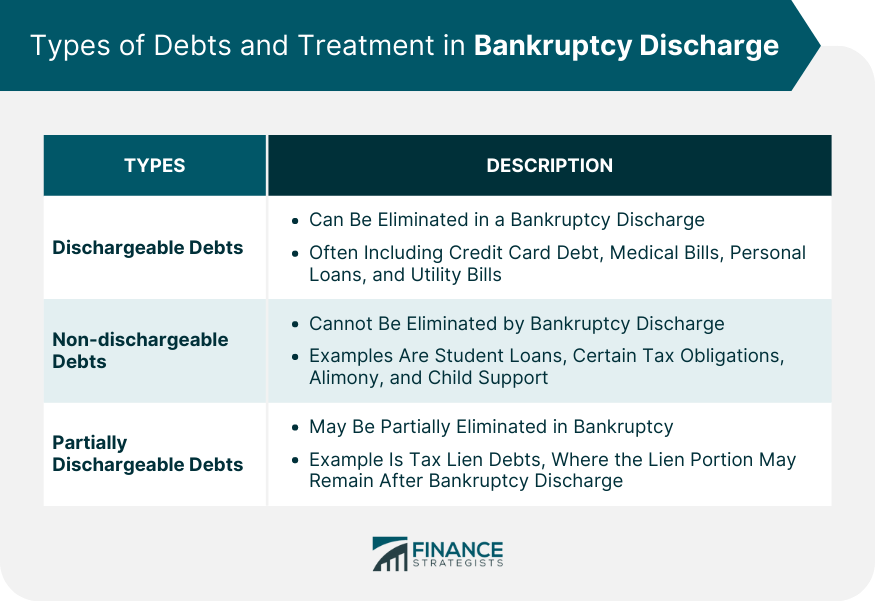
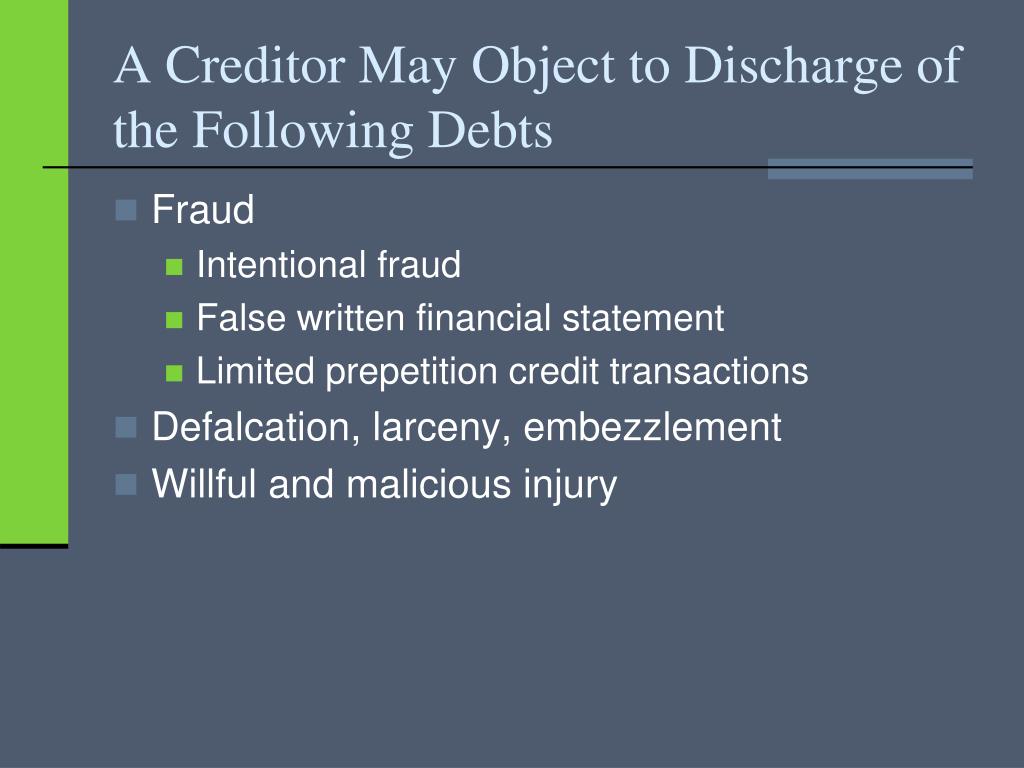
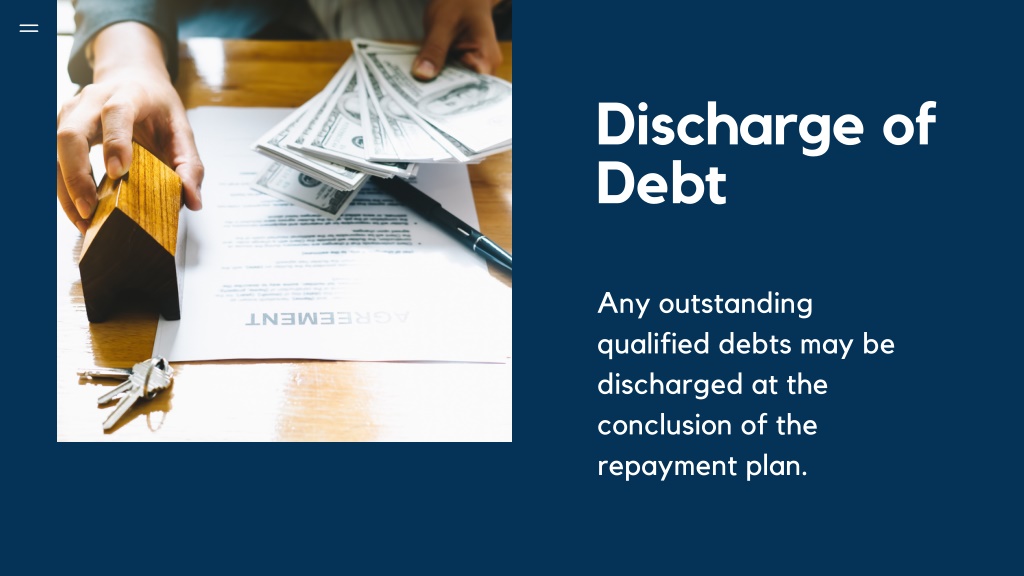
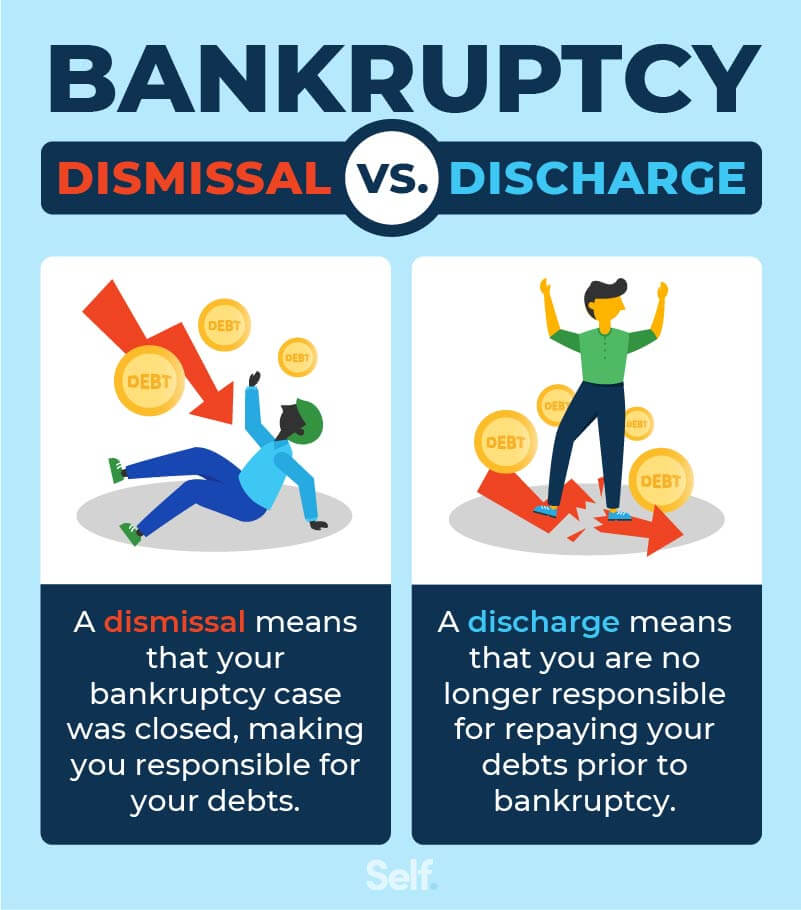
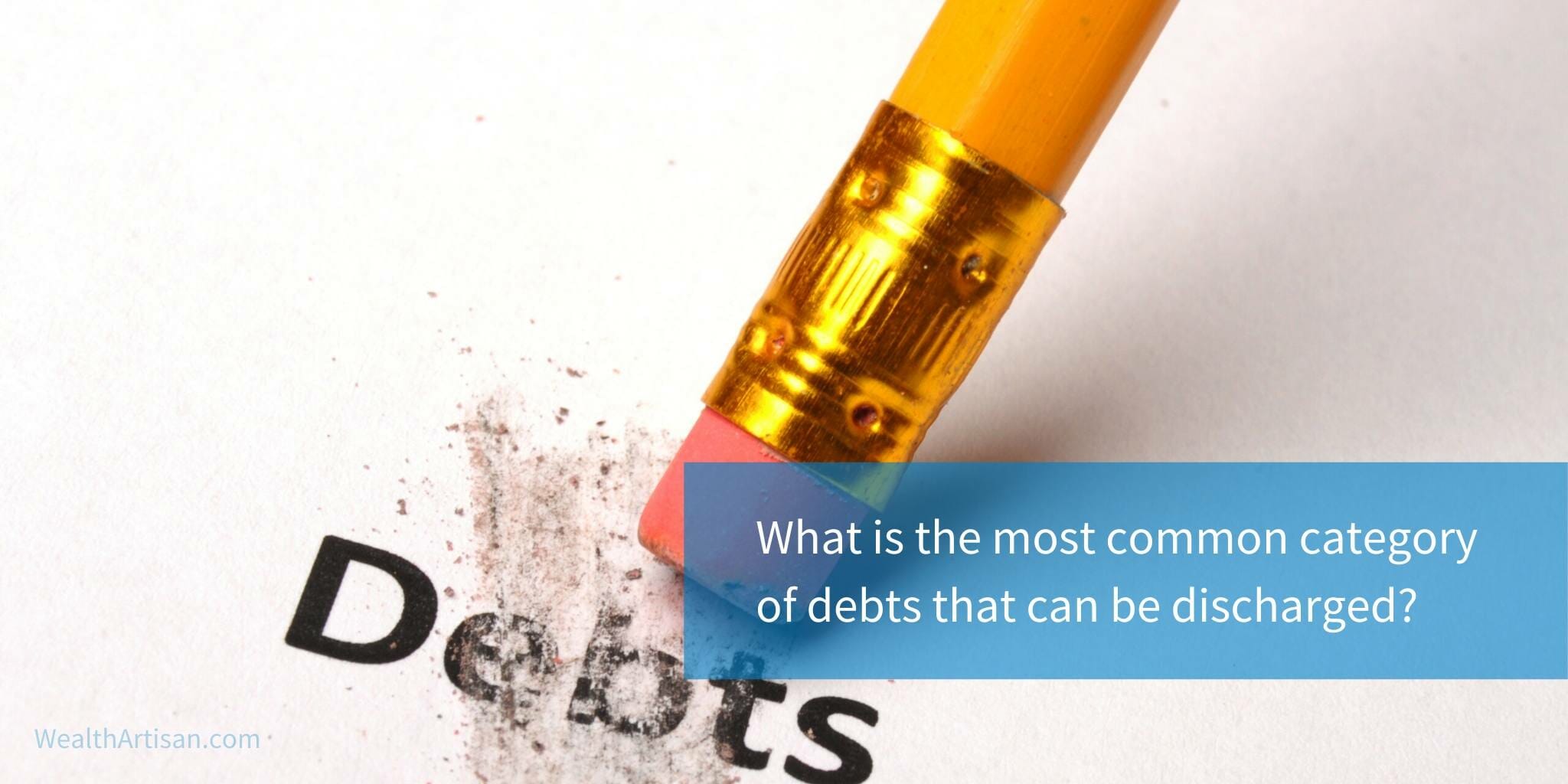
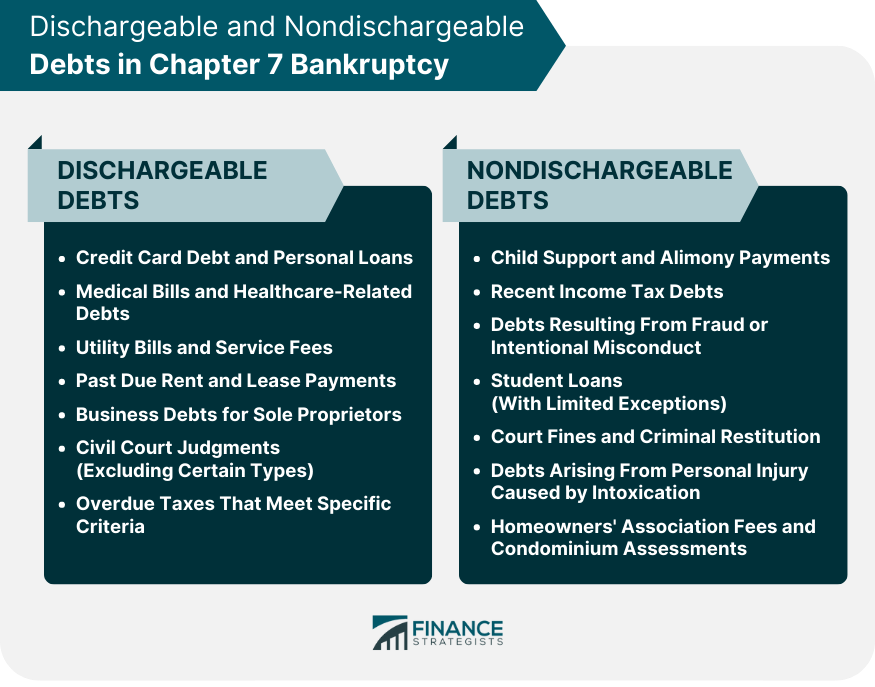
![Explained When Bankruptcy is Discharged [UPDATED 2023] LSS law](https://images.surferseo.art/93ada430-2c43-4145-9c42-9f911848fb8a.png)
:max_bytes(150000):strip_icc()/finalnew-cd2c2367ef8f4fcdaa1e9218acf86c9d.jpg)

:max_bytes(150000):strip_icc()/bankruptcy-discharge-what-is-it-and-when-does-it-happen-8eafb0f711c24a048d4854a82cdb5f70.png)